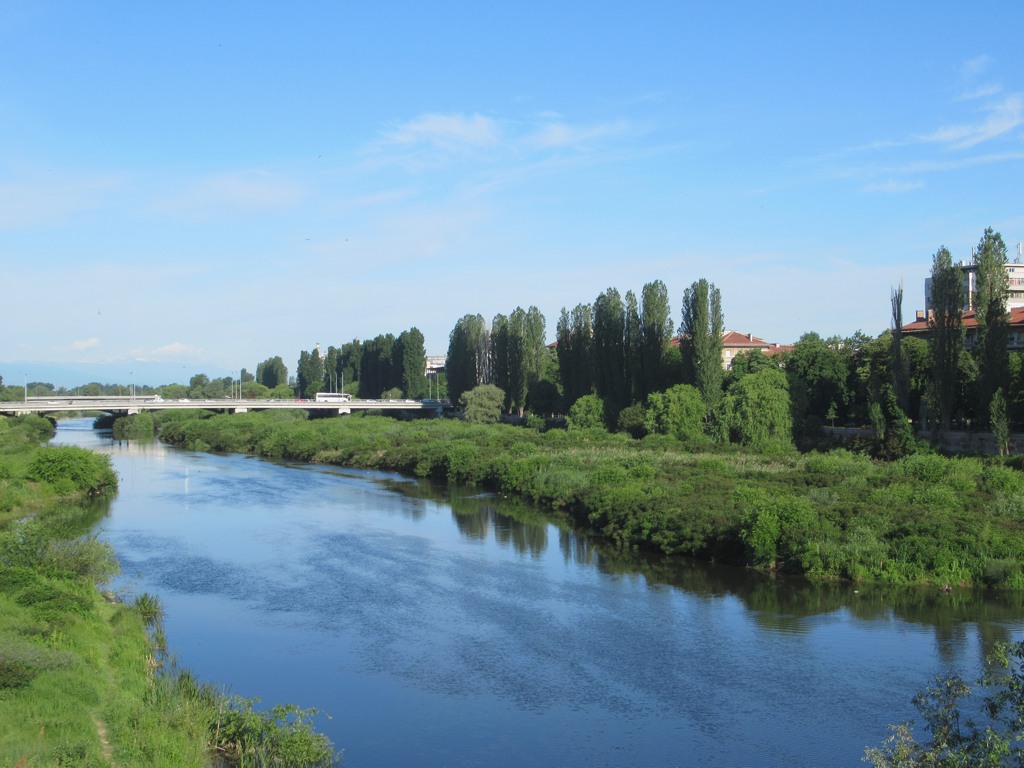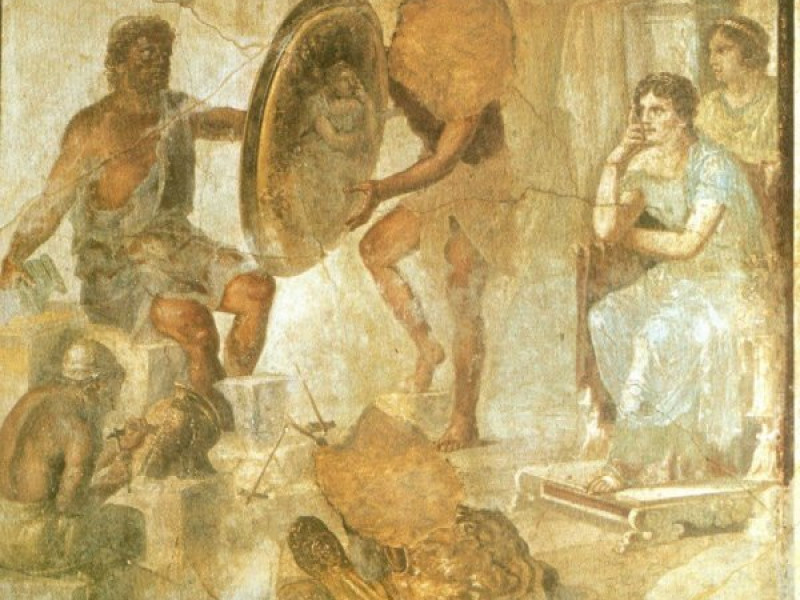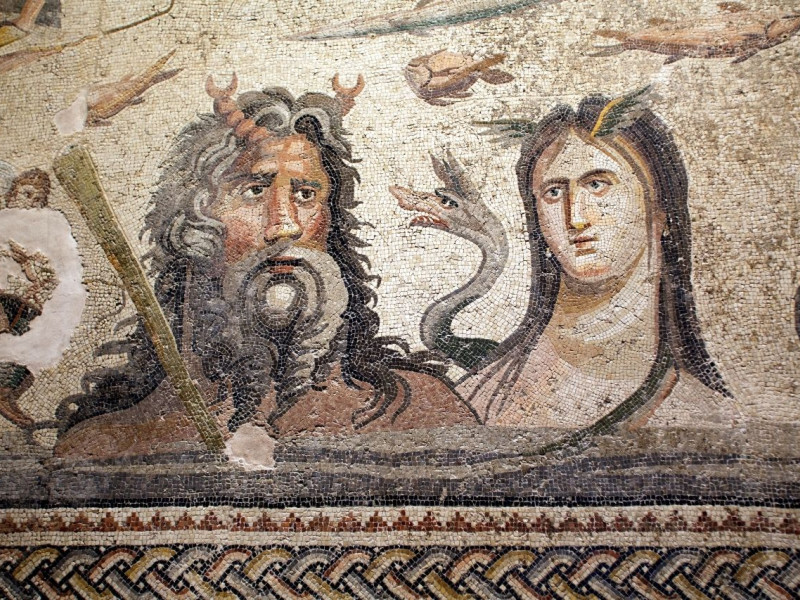Hebros (Hebrus): The River God in Greek Mythology
Hebros, in ancient Greek mythology, is a god who is the personification of a river located in Greece called Hebrus. Let us learn more information about this Greek god, an event that happened in his river, and his contribution to Greek mythology as we continue to read below.

Maritsa River (Hebros)
David Stanley from Nanaimo, Canada, CC BY 2.0, via Wikimedia Commons
The Less Familiar River God
The Hebros meaning in Greek mythology is referring to a river god whom the Ciconians worshipped. Ciconians or Kikonians refer to a Homeric Thracian tribe in a river called Hebros, which was located in Eastern Thrake, which is in the modern-day northern Greece and southern Bulgaria. The Hebros River has a path that starts at Mount Rhodope located in northern Thrace and empties into the Aegean Sea near Ainos, a Greek colony that was located opposite the island of Samothrace.
The god Hebros was the personification of the Hebros River, just like how the closest neighboring rivers were personified by the Greeks: the Nestos to the west, Istros to the north, and Ardeskos.
Hebros was apparently one of the sons of Oceanos and Tethys. Both Oceanos and Tethys are children of Uranus and Gaia. Oceanos was the oldest titan, also known as the father of 3,000 ocean nymphs and 3,000 stream spirits, whereas Tethys was Oceanos’ sister and wife, as well as the mother of the Oceanids and the river gods.
Hebros was the known father of Aba, a Thracian naiad nymph from one of the towns in Ciconia, the town of Ergisce. Aba was the mother of Ergiscus, the son she bore to Poseidon the sea god.
Hebros was also presumed to be the father of Rhodope, who was the wife of King Haemus, thus, the queen of Thrace. According to a myth, the couple offended the gods Zeus and Hera as they compare themselves to the latter. The gods then punished them by transforming Rhodope and Haemus into the Rhodope Mountains and Balkan Mountains, respectively. In other accounts, Rhodope was said to be the one who was known as the daughter of Strymon who became a consort of Poseidon and the mother of Athos.
Hebros in Mythology
Hebrus is the main river of the historical region of Thrace, located in Greece. The river was personified by the god Hebros and played various parts in Greek mythology. One known Hebros or Hebrus mythology was about the head of Orpheus, a celebrated Thracian bard and poet.
It was stated that Orpheus had the gift of enchanting every living and non-living creature using the sound of his golden lyre. He fell in love with Eurydice, got married, and settled in Thrace.
One day, Eurydice was bitten by a snake while walking and died because of it. Being devastated by what happened to his beloved, he started playing mournful melodies on his lyre that even the gods and goddesses were touched by his pain. So, they advised him to search for Eurydice in the Underworld.
Hades, the god of the Underworld, allowed him to take Eurydice back to the earth. As Orpheus passes the Underworld, the gods who were residing there cannot hold their tears as they hear the melodies he played. Hades' offer comes with one condition: he will have to walk in front of her and not look at her until they both have reached the daylight; this was when owever, Orpheus was worried that Hades might have tricked him.
Turn of Events
When they reached the top and were about to step into the daylight, he turned his head to look at Eurydice. The latter quickly disappeared back to the Underworld. The desperation shown by Orpheus leads him to a disrespectful attitude toward a god, which was considered Hebros or hubris, who was was described as fatal pride and transgression against a god.
According to Ovid, Orpheus abstained from the love of women since then, and though many of them desired him, he rejected them and took only male lovers instead, in this case for example. This gained him the ire of the Ciceronian women, who are also followers of Dionysus. They tore him to pieces during the Bacchic frenzy.
Orpheus’ head and lyre were thrown into the Hebrus River, but the lyre remained afloat and still sang mournful songs. His head was carried by waves and winds into the sea and into the island of Lesbos. There, Orpheus’ oracle was prophesied, and the residents buried his head and built a shrine in his honor near Antissa. Meanwhile, his lyre was placed among the stars in the heavens by the muses.
Terminology and Meaning
Hebrus is an ancient Latin name referring to the Maritsa River in Greece, which is now called Evros. Hebrus meaning “splasher” was borrowed from the Thracian word “ebros.”
Hebrus River was quoted many times in some classical literature: Virgil’s Georgics; Alcaeus’ Fragment; Ovid’s Heroides, Fasti, and Metamorphoses; once in Euripides’ Heracles and Bacchylides’ Dithyrambs; twice in Virgil’s Aeneid, Herodotus’ History; thrice in Statius’ Thebaid, Servius’ Commentary on Virgil’s Aeneid, Pliny the Elder’s Natural History, and Silius Italicus’ Punica; Ioannis Tzetzes’ Histories/Chiliades; Aristophanes’ Birds; Pomponius Mela’s Chorographia; and many more.
This river runs through the Balkans in Southeast Europe and serves as a natural barrier between Turkey and Greece. It is known as the Maritsa River in Bulgaria, Meric in Turkey, and Evros in Greece. It is considered the largest in Europe and the longest river that runs in the interior of the Balkans peninsula alone.
Conclusion
Hebros is the river god who personified the Hebrus River and became part of Greek mythology as various events took place in the vicinity of this river. Hebros is quite an interesting water god, which makes him unique in demeanor and attributes. Here’s what we’ve learned so far:
Hebros is often referred to as a lesser-known river god.
Hebros River was located in Eastern Thrake.
Hebrus is an ancient Latin name for a historical river located in Greece.
Hebrus River plays part in Greek mythology.
Hebrus River was considered the largest river in Europe.
Hebros might not be your typical water god, but in a literal sea of water gods and goddesses, Hebros is someone worth knowing despite being a lesser-known entity.






